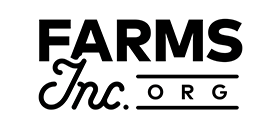Residents in Winston will be voting on whether to ease restrictions on cannabis shops in the city and, if so, whether to tax them locally, while in Reedsport, where such shops are already allowed, voters will weigh in on whether to add a local tax to those shops.
The question of whether to allow dispensaries in Winston has been a topic of debate for several years.
After recreational marijuana was legalized, Winston didn’t ban the product outright like some local governments in Oregon did. Instead, the city implemented more stringent buffer zone laws than the state. For example, Oregon law requires dispensaries to be in a commercial zone and at least 1,000 feet away from schools, daycare centers and other dispensaries. Winston requires them to be 500 feet from churches and 200 feet from properties zoned residential and parks/public reserve.
That left virtually no properties available to open a dispensary.
In 2019, the Winston City Council discussed whether to ease restrictions on where dispensaries could be located, but ultimately decided to put the matter to voters. At the time, City Manager Mark Bauer said he thought each dispensary could generate between $20,000-$40,000 per year in tax revenue for the city.
The Winston vote on easing restrictions for cannabis shops is considered “advisory” and therefore not binding, meaning the City Council has the power to override the decision of voters. But city officials have said putting the matter on the ballot then going against the wishes of voters would amount to “political suicide.”
Voters in Winston and Reedsport will also be asked whether their cities should impose a local tax on sales in recreational cannabis shops.
The state collects a 17% tax on dispensaries and local governments can add up to another 3%. That extra tax can add up for local governments. The City of Roseburg, for example, collected nearly $200,000 in taxes from eight licensed dispensaries in fiscal year 2018-19.
The Winston measure would impose a 3% local tax. The Reedsport measure does not specific the amount of the local tax, but by law it cannot exceed 3%.
______________________________________________
By Scott Carroll for nrtoday.com
